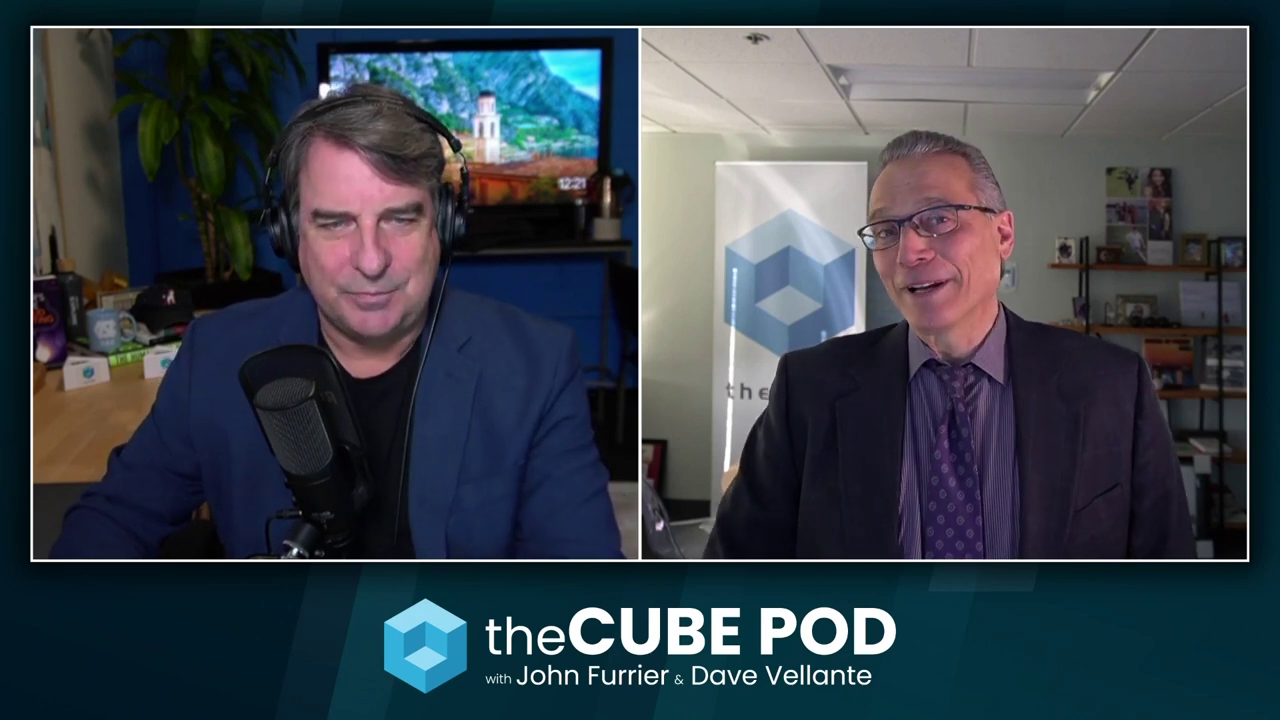 AI
AI
 AI
AI
 AI
AI
This week, Nvidia Corp. crushed Wall Street’s expectations as it delivered its fourth-quarter financial results. On the latest episode of theCUBE Podcast, theCUBE Research industry analysts John Furrier (pictured, left) and Dave Vellante (right) discussed those results and why Goldman Sachs Group Inc.’s trading desk called it “the most important stock on planet Earth.”
“Just an incredible run for Nvidia,” said Furrier. “Not new for us on theCUBE. We’ve been chronicling the software aspect of that for years. The die was cast years ago with CUDA and all the other systems. Nvidia is the story.”
The day before Nvidia crushed expectations was interesting, because shares of Palo Alto Networks Inc. plunged just over 20%. That sent the tech stock market down, and some people pondered if the tech bubble was bursting, according to Vellante.
“That spilled over to Nvidia yesterday. And people were very cautious. The stock was down, not that the day-to-day stock movements matter,” Vellante said. “But you can’t help but watch it because it reflects the sentiment in the market.”
With that in mind, Vellante put out a post on X before Nvidia’s earnings were released. The expectations were sky-high for a seven-times increase in profit and a three-times increase in revenue year-over-year, he wrote.
“Then I said, ‘Well, that is a two-year backlog of their GPUs. They have virtually got no competition,’” Vellante said. “Unless they have very poor visibility on what they can actually produce, you would think they’re actually going to beat their expectations. So they did.”
This week, Intel Corp. announced a bid to become the “systems foundry for the AI era” with a goal to become the No. 2 chip foundry by 2030. Intel’s unveiling of Intel Foundry was highly produced and an incredible production, according to Vellante.
“They positioned it as the world’s first AI foundry, which is, again, trying to deposition TSM and basically say, look, TSM is monolithic. We’ve got the future with the chiplet era,” Vellante said. “Really, I mean, brilliantly packaged, but I have to say, and it gives me no joy to say this. The bottom line is still the same, John. Intel’s losing share.”
It was Nvidia that was having an Intel moment, according to Furrier. The Nvidia story is really a blend of strategic brilliance, technology innovation and market acumen, he added.
“Jensen [Huang], years ago, set the table for this,” Furrier said. “This is not new. Again, they have economies of scale; everyone playing catch-up, will have diseconomies of scale. As Nvidia navigates the ever-changing landscape, it’s going to be incredible to watch the impact they’re going to have on the AI market.”
Still, questions remain, according to Furrier. There’s still a huge gap on product, and there are questions around supply chain problems and the demand for AI.
“To assess the question, you know, how long will this last? Is this just a bubble? Is this sustainable? Won’t competition eat them alive?” Vellante said. “I think you’ve got to go back to like, at least 2006, when Nvidia introduced its CUDA software architecture.”
The whole point of that was that the GPUs that it was producing needed proprietary software so that people could program for this new type of computing, according to Vellante. In 2012, the AI researchers started really getting into programming GPUs for building large language model, he noted.
“Then it took them years to perfect that. If you’ve ever heard Ilya talk about their journey and how size mattered, and then when they started getting video and audio, it made a difference,” Vellante said. “Then 2019, and Nvidia buys Mellanox. They tune their chips for InfiniBand. And then, in 2021, in the middle of COVID, they introduced an ARM-based architecture. This is all before ChatGPT was announced.”
The point of all of this is that Nvidia had been building a moat for well over a decade, according to Vellante. The conclusion is that we are now entering a multi-decade wave, he pointed out.
“Nvidia could make mistakes, they could screw up, they could get arrogant and shoot themselves in the foot,” Vellante said. “But if they don’t, I think they’re going to dominate this market. I think they’ll have 80% of this market, which is going to be billions of dollars.”
Jensen Huang, founder and CEO of Nvidia
C.J. Muse, senior managing director at Cantor Fitzgerald
Matt Baker, SVP for corporate strategy at Dell Technologies
Adam Selipsky, CEO at AWS
Tim Crawford, CIO strategic advisor at AVOA
David Floyer, CTO and co-founder of Wikibon
Pat Gelsinger, CEO of Intel
Sam Altman, co-founder and CEO of OpenAI
Satya Nadella, chairman and CEO of Microsoft
Tim Bajarin, chairman at Creative Strategies
Steve Ballmer, former CEO and president of Microsoft
Lina Khan, chair of the Federal Trade Commission
Jeff Bezos, chairman of Amazon
Frank Slootman, chairman and CEO of Snowflake
Lisa Su, chair and CEO of AMD
Jayshree Ullal, CEO and president of Arista Networks
Don’t miss out on the latest episodes of “theCUBE Pod.” Join us by subscribing to our RSS feed. You can also listen to us on Apple Podcasts or on Spotify. And for those who prefer to watch, check out our YouTube playlist. Tune in now, and be part of the ongoing conversation.
THANK YOU